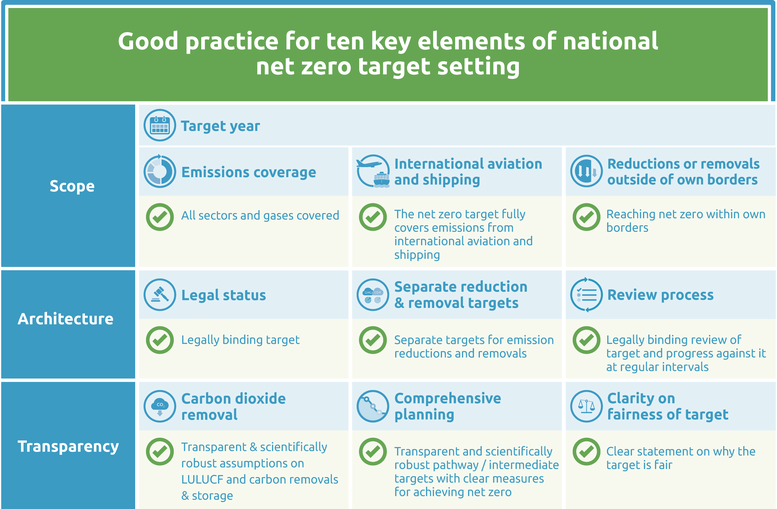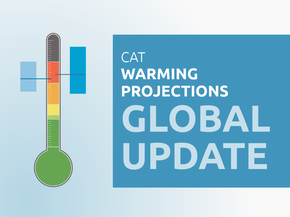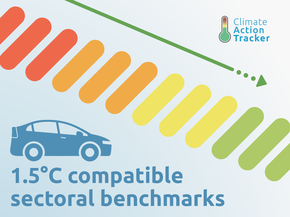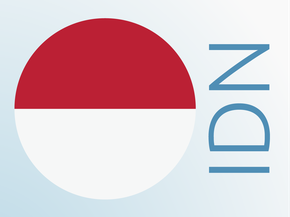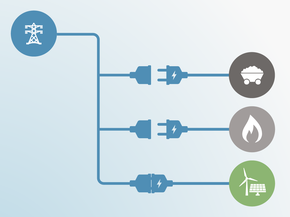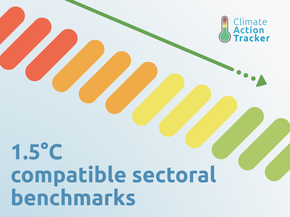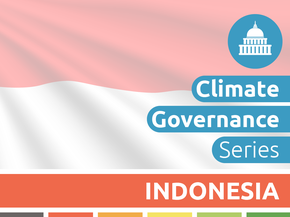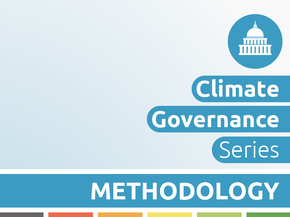Net zero targets
Summary
We evaluate the net zero target as: Target information incomplete
Indonesia has not yet communicated an explicit net zero target but explores scenarios that could lead to net zero by 2060 or sooner in its long-term strategy (LTS) submitted to the UNFCCC in July 2021 (Government of Indonesia, 2021).
The CAT currently does not evaluate Indonesia’s net zero target given the preliminary nature and a lack of more detailed information. The CAT will do so once further information will be communicated by the government.
Ten key elements
Scope
● Target year – Indonesia aims to reach net zero by 2060.
● Emissions coverage – Indonesia provides no explicit information on the target’s emissions coverage. The LTS considers some, but not all GHGs – the energy sector analysis focuses on CO2; while the waste sector analysis considers CO2 and CH4; industry considers CO2, N2O, PFCs, omitting HFCs and SF6; and the AFOLU sector considers CO2, CH4, and N2O (Government of Indonesia, 2021).
● International aviation and shipping – Indonesia provides no information on its intention to cover international aviation and shipping.
● Reductions or removals outside of own borders – Indonesia provides no information on its intention to use international offset credits to meet its net zero target.
Target architecture
● Legal status – Indonesia has not yet communicated an explicit net zero target but explores scenarios that could lead to net zero by 2060 in its long-term strategy (LTS) submitted to the UNFCCC in July 2021 (Government of Indonesia, 2021).
● Separate reduction & removal targets – Indonesia provides no information on its intention to communicate separate emission reduction and removal targets.
● Review process – Indonesia provides no information on its intention to establish a review cycle for its net zero and intermediate targets.
Transparency
● Carbon dioxide removal – Indonesia provides no information on its intention to communicate transparent assumptions on carbon dioxide removals.
● Comprehensive planning – The LTS explores scenarios that could lead to net zero by 2060 or sooner but Indonesia does not yet formally commit to a pathway (Government of Indonesia, 2021).
● Clarity on fairness of target – Indonesia provides no information on its intention to explain the target’s fairness.
Good practice
The Climate Action Tracker has defined the following good practice for all ten key elements of net zero targets. Countries can refer to this good practice to design or enhance their net zero targets.
Further analysis
Country-related publications
Stay informed
Subscribe to our newsletter
